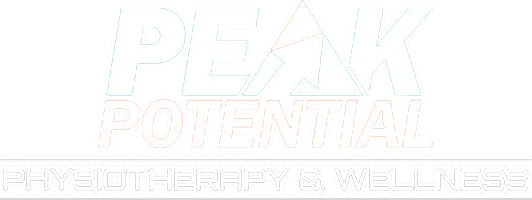Have you experienced inflammation as a runner?
It is a shared human experience, because if you have had a papercut you have seen inflammation first hand. It is a normal part of life and a normal part of endurance training and it’s not all bad. It naturally occurs to help our body heal from a stressor – maybe a hard training session, a new training plan, or race day. So, here is what every runner needs to know about inflammation before their next race.
We want a certain amount of inflammation, but we don’t want too much or for it to hang around longer than it is making itself useful. An unruly inflammatory response can be a result of poor nutrition, inadequate recovery, ongoing injury, poor sleep, or genetic predisposition.
Why is too much inflammation bad for a runner?
In the short term it negatively impacts performance, compromises the immune system, increases aches and pains, causes hormone dysregulation, and can even result in weight gain. Long term, chronic inflammation can lead to increased risk for cardiovascular disease, diabetes, osteoporosis, dementia, skin conditions, and autoimmune disease.
What is unique about inflammation for the endurance athlete?
To perform your training and complete your race, you rely on oxygen use in skeletal muscle. The oxidative nature of this training increases the production of free radicals and results in an inflammatory response to help protect your bodies tissues. This is a really good thing – temporarily.
In fact, you don’t want to load up on antioxidants or anti-inflammatories during or immediately following training. You want the inflammation to do its jobs so you don’t end up with an injury or tissue damage. But then, you want the inflammation to get out of there ASAP.
Anyone experienced upper respiratory symptoms post-race? It was thought to be an increased susceptibility to infection, but this is only about 5% of cases, 40% are actually caused by inflammation (the other 55% are asthma or allergies which can have connection to inflammation as well).
So we should probably take NSAIDS and knock out that inflammation right?
NSAIDS like ibuprofen can decrease inflammation & pain, but cause gut damage, impair recovery, and harm performance. If you are a few weeks out from a race, using these medications could be one of the worse things you can do in order to get yourself to the starting line successfully or the finish line with a PR.
What should we do instead to overcome inflammation?
Take care of the main causes of prolonged inflammation. There will be tremendous health benefits long term, but also performance benefits as early as your next race.
1. Sleep
When you are in deep sleep, your body repairs, recovers, and removes excess inflammation. The harder you train, you more rest you will need to recover. If you are having trouble sleeping, reach out to our Integrative Health Coach for simple strategies.
2.Remove Inflammatory Foods
Foods can trigger our body to hold onto more inflammation. The universal culprits are sugar and artificial colors, flavors, and sweeteners. The biggest culprits among runners are energy and hydration drinks. Be sure yours is clear of the fake stuff.
3.Add Anti Inflammatory Foods
Incorporate real foods like berries, leafy greens, nuts, seeds, and cruciferous vegetables to fight inflammation caused by your training. An anti inflammatory supplement like vitamin C or turmeric should be taken at least 1 hour before or after training so you don’t disrupt the natural healing response.
4. Supplement for Nutritional Gaps
Probiotics, prebiotics, green tea, and omega 3 fish oil are all supplements that will support the inflammatory response and immune system when you are asking your body to work overtime. Inquire at the link below to learn more our personalized supplementation programs to dial in exactly what your body needs more of.
5. Take Care of Injuries
Don’t let a nagging injury or flare up perpetuate inflammation in your body. Our doctors of physical therapy can quickly help calm the discomfort and keep you on your training schedule. In addition to our traditional hands on treatment techniques, we have modalities that help decrease localized inflammation and support lymphatic flush to keep it moving on out.
Expert Tip . . . Know your Genetics
Some of us have a genetic predisposition to increased levels of inflammation. Knowing where you stand genetically lets you know how much you need to dial in each of these areas to prevent inflammation from limiting your performance.
In addition, not getting enough of what your body needs in terms of vitamins, minerals, and macronutrients results in increased stress hormones and decreased energy production making your body unable to fight inflammation. Nutrition genetic testing allows us to dial in exactly what your body needs to thrive, most effectively produce energy, and conquer your race day goals.
Have questions about your inflammatory response, maximizing recovery, or fitness and nutrition genetic test? Click HERE to visit our website or just send an email directly to admin@peakpotentialpt.com


